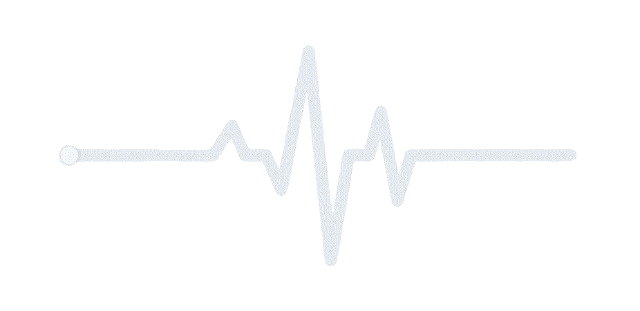Fatty Liver Disease: Early Action Can Save Your Liver
At King’s Liver Transplant Centre of Excellence, we believe that liver health is not just about treatment but prevention, timely diagnosis, and compassionate care.
Fatty liver disease, particularly Non-Alcoholic Fatty Liver Disease (NAFLD), is becoming increasingly common worldwide, including the UAE.
However, it can be managed and even reversed with proper medical attention and lifestyle interventions.
What Is Fatty Liver Disease?
Fatty liver disease happens when excess fat collects in the liver cells, gradually affecting liver function.
It is broadly classified into:
- Alcoholic Fatty Liver Disease: Directly linked to excessive alcohol intake.
- Non-Alcoholic Fatty Liver Disease (NAFLD): Develops in individuals who drink little or no alcohol.
NAFLD is especially concerning because it often presents no symptoms in its early stages but can progress to liver inflammation, scarring (fibrosis), cirrhosis, or even liver cancer if left untreated.
Common Causes and Risk Factors
NAFLD is commonly associated with:
- Obesity
- Type 2 diabetes
- High cholesterol or triglycerides
- Sedentary lifestyle
- Poor dietary habits
- Polycystic ovarian syndrome (PCOS)
- Genetic predisposition
It’s important to note that even lean individuals can develop NAFLD, particularly in the presence of insulin resistance or metabolic imbalances.

Symptoms: Often Silent, Sometimes Subtle
Usually, fatty liver disease does not produce symptoms until it has advanced. When symptoms do appear, they may include:
- Persistent fatigue
- Mild discomfort along with pain in the upper right abdomen
- Unexplained weight loss
- Weakness
Because symptoms can be vague or absent, routine screening and liver function tests are vital, especially for those with risk factors.
How to Diagnose Fatty Liver Disease
At King’s Liver Transplant Centre of Excellence, a combination of advanced diagnostic tools is used to evaluate liver health:
- Blood Tests: Liver enzymes, lipid profile, and insulin resistance markers.
- Imaging Tests: Ultrasound, FibroScan (elastography), or MRI.
- Liver Biopsy (in select cases): To assess the extent of inflammation or scarring.
The approach is always evidence-based, patient-centric, and tailored to your unique health profile.

Fatty Liver Disease Treatment in Dubai: Your Path to Liver Wellness
Fatty liver disease can be reversed, specifically in the early stages.
Personalised Treatment at King’s Liver Transplant Centre of Excellence:
- Tailored Nutrition Plans
Dietary changes can significantly improve liver health. With the guidance of experienced dietitians, patients receive simple, sustainable meal plans that focus on balanced nutrition, portion control, and gradual weight loss without relying on restrictive diets.
- Encouraging Active Lifestyles
Even moderate movement can make a big difference. Walking, swimming, or light cycling can help reduce liver fat, improving overall health, especially when done consistently.
- Managing Associated Health Conditions
Fatty liver often develops alongside issues such as type 2 diabetes, high cholesterol, or hypertension.
Treating both these conditions together can improve liver function, thereby reducing the risk of long-term complications.
- Ongoing Health Monitoring
Regular follow-ups help track changes in liver function.
- Specialist Intervention for Complex Cases
When liver disease becomes more advanced, specialist care may be necessary. Patients have access to leading hepatologists and transplant consultants, ensuring expert support at every stage of the condition.
Advanced Cases: When Liver Transplant Becomes a Lifeline
When fatty liver disease progresses to cirrhosis or liver failure, medical therapy alone may not be enough. In such cases, liver transplantation becomes a vital, life-saving option.
At King’s Liver Transplant Centre of Excellence, patients benefit from:
- A dedicated transplant team comprising expert hepatologists, transplant surgeons, anaesthetists, and critical care specialists.
- Minimally invasive and microsurgical techniques for improved outcomes and shorter recovery times.
- Advanced pre- and post-transplant support, ensuring patients and families are guided at every step.
- A proven track record in managing end-stage liver disease, including those due to NAFLD-related cirrhosis.
What Does Fatty Liver Treatment Cost in Dubai?
The cost of fatty liver treatment in Dubai varies significantly, typically ranging from AED 1500 for basic diagnostic packages to higher amounts depending on the disease’s severity, the need for advanced tests like Fibroscan, and personalised treatment plans such as lifestyle programs or medication.
Factors like the stage of the disease, required diagnostic tests, and the chosen treatment approach all influence the overall cost.
Why Choose King’s Liver Transplant Centre of Excellence?
- Legacy of Expertise: Backed by King’s College Hospital London, we bring British standards of liver care to the UAE.
- Multidisciplinary Team: Including hepatologists, dietitians, endocrinologists, and transplant surgeons.
- World-Class Infrastructure: State-of-the-art diagnostics, treatment suites, and transplant facilities.
- Continuity of Care: From early diagnosis to advanced interventions and post-treatment support.
Healing Starts Here: Trust King’s Liver Transplant Centre of Excellence
Don’t wait for symptoms to strike. Whether you’re seeking clarity, treatment, or ongoing management, our team is here to help you regain control of your liver health.
At King’s Liver Transplant Centre of Excellence, expert care is paired with the reassurance of a healthier tomorrow.
Book a consultation today and take the first step toward reversing fatty liver disease.
Your liver deserves expert care. So do you!


